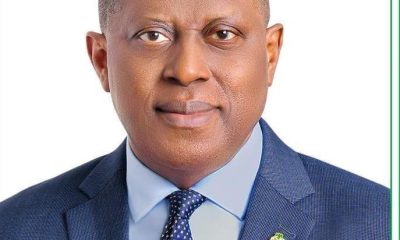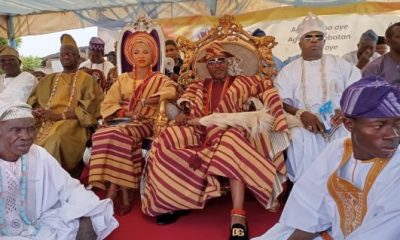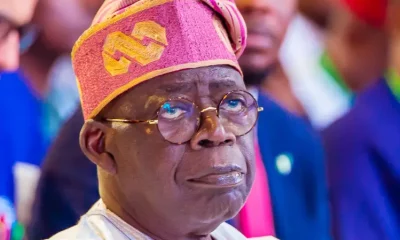News
Abandoning Oyetola’s Food Initiative For Vulnerable Will Increase Hardship In Osun—Ex-Commissioner

The erstwhile Commissioner for Regional Integration and Special Duties, Olalekan Badmus, has warned that the stoppage of previous initiative for the poor would surge hardship and poverty in the state under the administration of Governor Ademola Adeleke.
Badmus, who served in the cabinet of former Governor Adegboyega Oyetola, noted that Oyetola’s government was responsive to the needs of the citizen, thereby introducing monthly food distribution to mitigate hardship and boost economic development.
The ex-commissioner, in a statement signed on Monday, explained that, “It is unfortunate that since this new administration came on board, they have not really shown any capacity that they have a clear-cut direction to provide succour for the less privileged in the state.
“Conversely, the administration of Oyetola was proactive to the people’s plights. Our government commenced the monthly food initiative that was committed to feeding 30,000 households every month. And this laudable project was sustained for 20 months, from April 2021, until when we exited government and the Adeleke government stopped it abruptly. The stoppage has not only impacted on the well-being of the vulnerable beneficiaries of the scheme, it has equally affected the financial inflow of many young entrepreneurs and farmers that we engaged in the project.”
“Oyetola-led administration engaged over 100 youths in production chains of the food support scheme which fed over 600,000 households.
“We patronized food processors in the state and bought over 1,000 metric tonnages of garri and amidst other food that are produced locally.”
Badmus appealed to the current government to review its decision to halt the scheme, advising that returning to it would go in a long way in ameliorating the harsh living condition of the socially challenged citizens of the state, particularly in this period when the fuel subsidy removal has disrupted the living standard of the people.
-

 News4 days ago
News4 days agoInsecurity: Kogi Schools Resume On Monday
-

 Opinion4 days ago
Opinion4 days agoDon’t Pull the Plug: Why Nigerians Are Pleading for the U.S. to Extend Its Police Training Program — and Why It Must Synergize With New Military Arrivals
-

 Crime3 days ago
Crime3 days agoVigilante Reportedly Shoots Colleague Dead In Plateau
-

 Crime4 days ago
Crime4 days agoMan Shot Dead In Ambush Along Jol-Sho Road In Plateau













